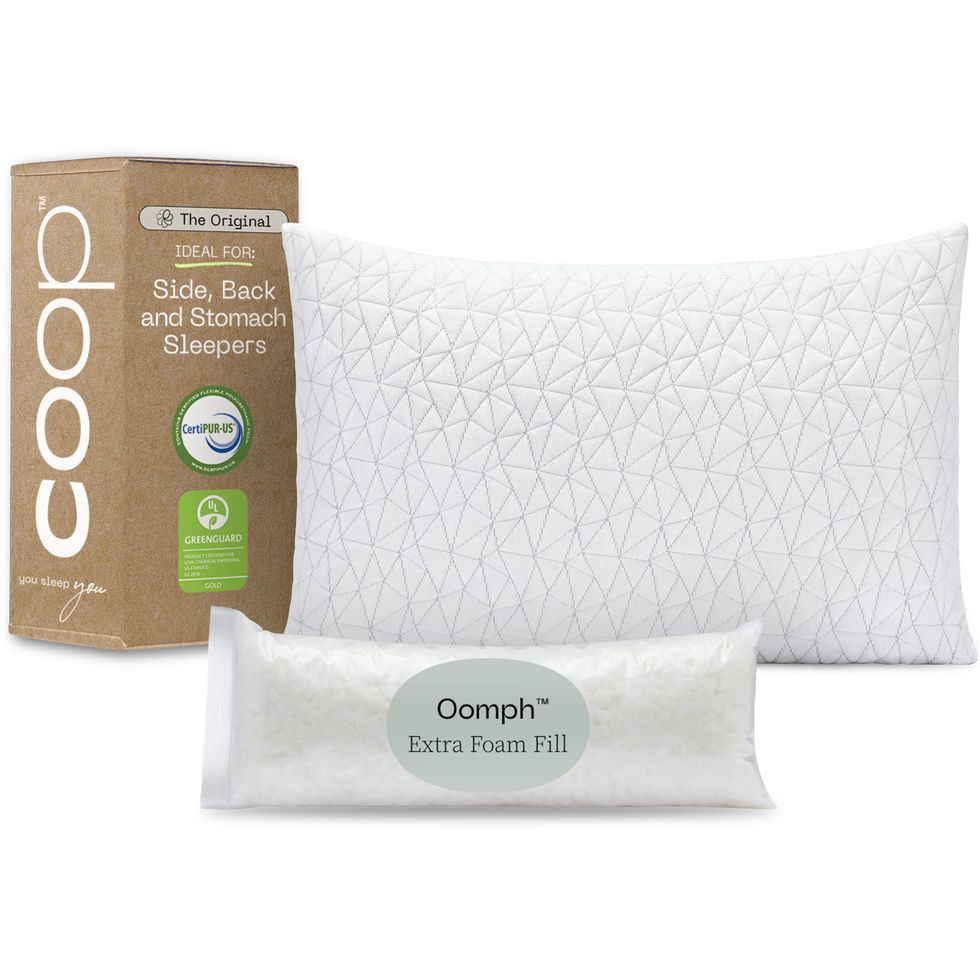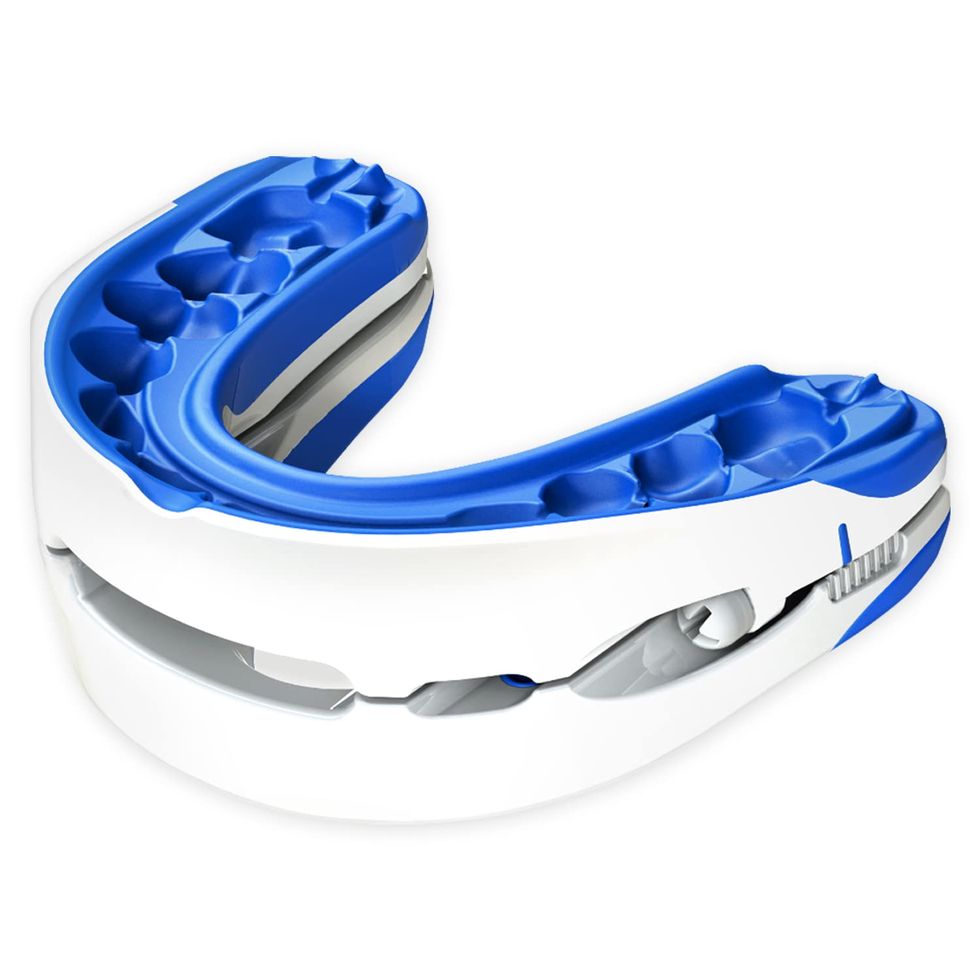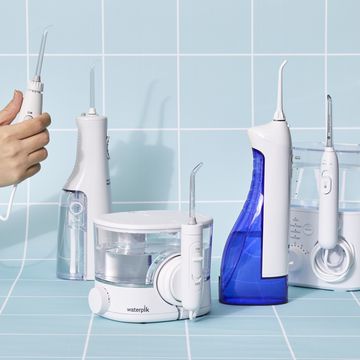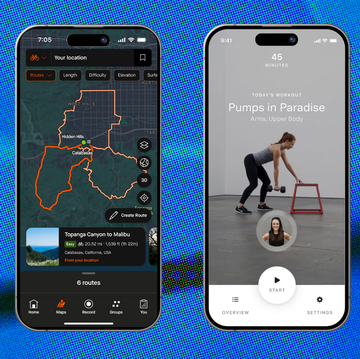6 Best Anti-Snoring Devices, According to Sleep Experts
Get better sleep with these nose strips, mouthpieces and more.

We've been independently researching and testing products for over 120 years. If you buy through our links, we may earn a commission. Learn more about our review process.
Snorting and snuffling and the occasional loud honk — no matter the snoring style, it can really disrupt a pleasant slumber for both the snorer and their bed partner. “Snoring is normal for many people. In fact, nearly everyone snores at some point, including babies and young children. In medical terms, snoring is the resistance of airflow through the upper airway due to relaxed tissues, and the sound is caused by the vibration of tissues in the back of the throat during sleep,” explains Raj Dasgupta, M.D., clinical associate professor of medicine at Keck School of Medicine at USC in California. “Snoring typically worsens as you progress to deep sleep and REM sleep, sleep stages when your throat tissues are most relaxed and so partially block your airway — the narrower your airway, the more forceful the airflow and the louder the snoring.”
Editor's note: You should not use any anti-snoring devices on children unless you speak with a medical professional.
Mild or occasional snoring usually isn’t cause for concern and can be caused by a few different things. For starters, it could just be the anatomy of your mouth. “Having a low-lying soft palate (the back of the roof of the mouth) or a thick neck circumference can narrow the airway, and an elongated uvula (that dangly thing!) can cause obstruction and increase vibrations,” Dr. Dasgupta says.
Our top picks:
Other snoring triggers include drinking alcohol, weight gain, being overweight or congestion. “When someone consumes a sedative like alcohol, the muscles of the tongue and palate lose tone, resulting in snoring. Weight gain can result in excessive tissue in the oropharynx that causes snoring. Or often, nasal obstruction can result in mouth breathing and snoring at night,” adds Yasmeen Jalal, M.D., otolaryngologist at Memorial Hermann in Houston, Texas.
The more concerning type of snoring is when it sounds like breathing stops and starts throughout the night, if the volume is very loud or if the snorer wakes up gasping or choking for air—these are all major symptoms of obstructive sleep apnea (OSA), and the snorer should see a doctor ASAP. “You should always get screened for OSA if you’re experiencing the classic signs” because the sleep disorder can be dangerous, says Dr. Dasgupta; evaluation entails a questionnaire and in some cases a sleep study may be recommended. Another reason to see a doc if this sounds like you or someone you know: Treatments for OSA, such as a CPAP machine (continuous positive airway pressure therapy), can be very helpful but require a prescription.
Now that you know what causes snoring, what to do about it? Sleeping on your side is one tweak that may help—back sleeping is typically what causes the most frequent and loud snoring because gravity’s effect on the tongue narrows the airway, says Dr. Dasgupta. Avoiding alcohol before bed, not smoking and trying mouth exercises to strengthen the muscles can also be helpful. And if you think snoring is being caused by congestion (either from seasonal, environmental or pet allergies, or being sick), “taking an over-the-counter decongestant in the morning and before bed, or using a saline wash in the morning may help,” says Michael Breus, Ph.D., clinical psychologist, sleep medicine expert, and Diplomate of the American Board of Sleep Medicine.
There are also several different types of sleep aids, such as the anti-snoring devices below that may help stifle your snuffling. Here’s what sleep experts have to say about the best anti-snoring devices, including nose strips, mouth guards and pillows, and how to find the right one for you.


Readers Also Read

The Best Teeth Whitening Products
The Best Fitness Watches for Women

The Best Electric Toothbrushes

These Are the Best Walking Shoes for Women


















